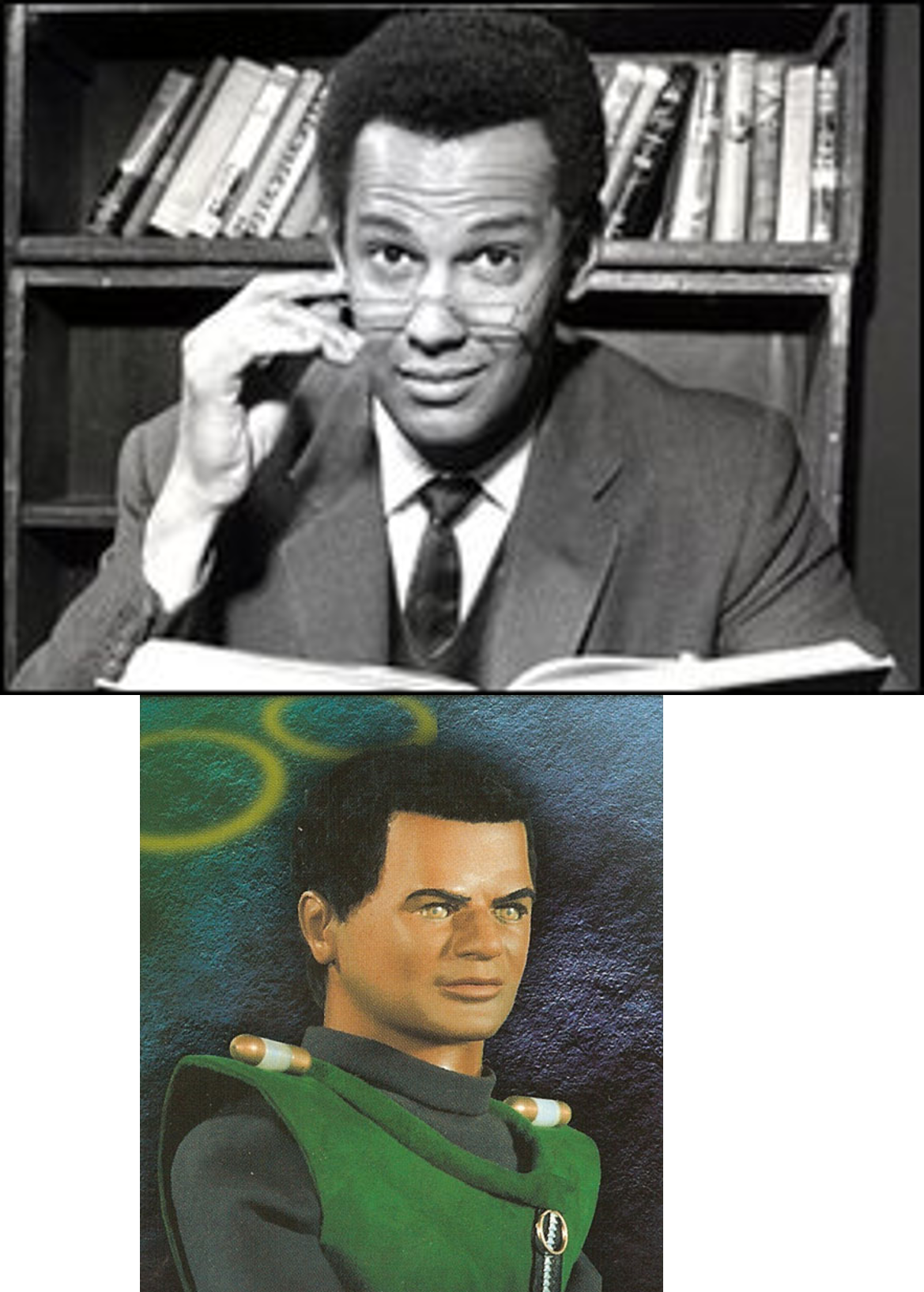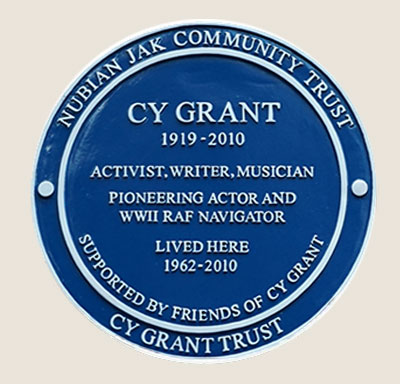
Cy Grant [1919 - 2000]
In November 2017, a crowd gathered in Highgate, North London, to unveil a long overdue plaque for Cy Grant, a multi-talented actor, writer, activist, barrister, musician, poet and an RAF navigator, who was once taken as a POW by the German Luftwaffe during World War II.
Attending the unveiling was a constellation of characters, including the Mayor of Haringey, dignitaries from Grant’s native Guyana and other Caribbean countries, war veterans, in-service men and women, Grant’s former show-business contemporaries, family and friends, as well as members of the general public.
Cy Grant was born in British Guiana (modern-day Guyana), one of seven children in a close-knit middle-class family. His father was a Moravian minister, and his mother was a music teacher from Antigua.
In 1941, Grant joined the Royal Air Force in the early years of the Second World War and was based at RAF Elsham Wolds in Lincolnshire. On his third operation, in 1943, Grant was shot down over the Netherlands during the Battle of the Ruhr. He parachuted to safety into a field and was imprisoned in Stalag Luft III camp, east of Berlin, for two years.
In 2007 Grant was featured in a documentary, Into the Wind (2011), about his experiences as an RAF navigator. He became a member of the Middle Temple in London and qualified as a barrister in 1950. However, despite his distinguished war record and legal qualifications, he could not find work at the Bar and decided to take up acting. Aside from earning a living, he saw acting as a way to improve his diction in preparation for when he finally entered Chambers. Moving to London, he came to national prominence in the 1950s as the first person of colour to be featured regularly on television in the UK – mainly due to his appearances on the BBC’s Tonight Show, with journalist Bernard Levin and on BBC radio.
In 1956, he appeared in A Man from the Sun, a television drama written by John Elliot about the experience of Caribbean migrants to Britain after the Second World War and appeared in an episode of The Persuaders, opposite Roger Moore. He hosted his own television series, For Members Only, which consisted of performances and interviews. Between 1967 and 1968, he was the voice and inspiration behind the massively popular children’s character of Lieutenant Green in Gerry Anderson’s Captain Scarlet and the Mysterons. In addition, he made several appearances in films, including the 1957 Seawife alongside Richard Burton and Joan Collins.
In the seventies, Grant co-founded Drum Arts Centre in London to challenge discrimination in the Arts. He wrote two books, Ring of Steel: Pan Sound and Symbol (Macmillan Caribbean, 1999) and Blackness and The Dreaming Soul (Shoving Leopard, 2007), and in 2008, he began an online archive to trace and commemorate Caribbean airmen of the Second World War. In 2016, The Cy Grant Trust was launched to preserve Grant’s work.
Location: 54 Jacksons Lane, Highgate, London, N6 5SX

